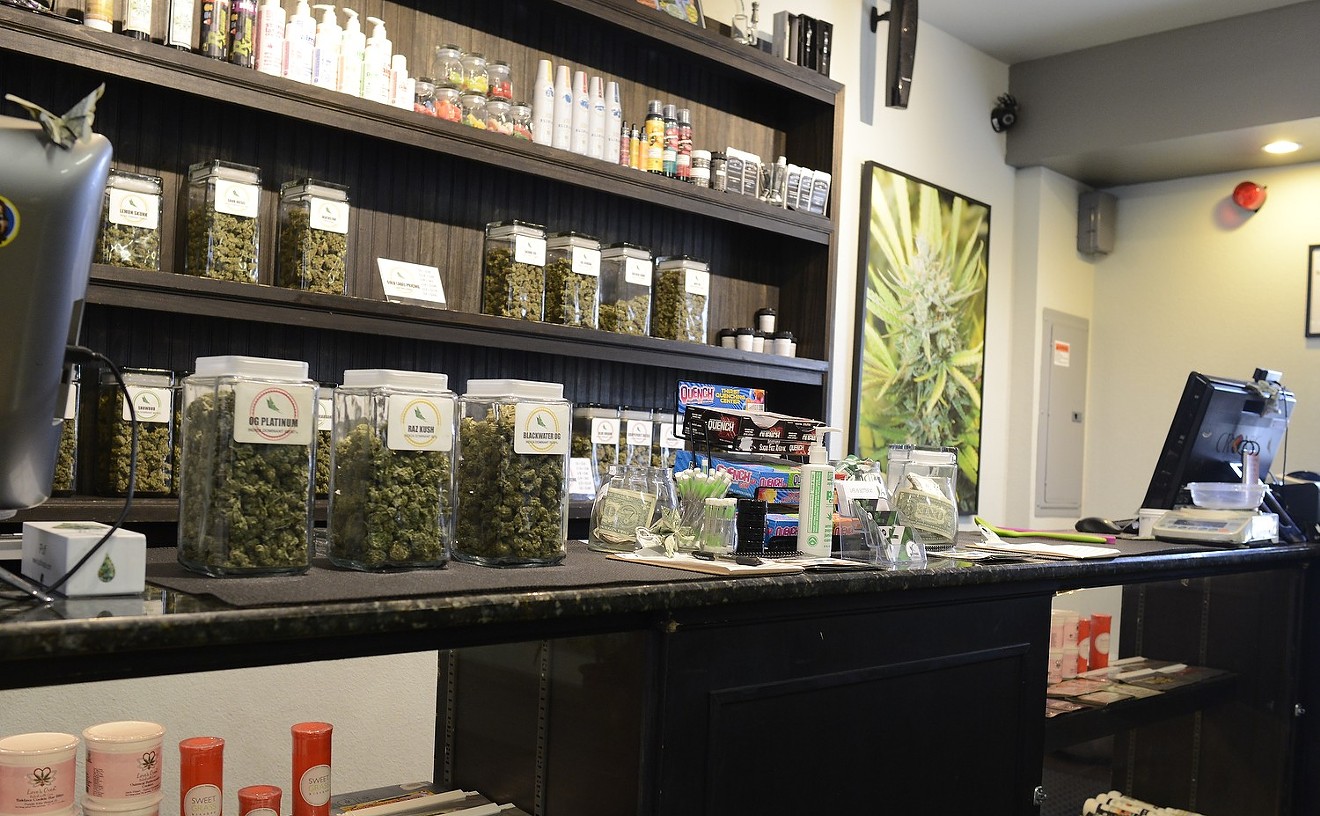Previously, only state-registered caregivers of student patients could administer medical marijuana medication on school grounds in Colorado. However, children suffering from seizures, autism, Crohn's disease and other debilitating conditions often need treatment faster than caregivers can arrive at their school, according to parents of young patients.
The Clear Creek County school board approved the new policy unanimously on October 15.
Clear Creek is now the first school district to take full advantage of a 2018 Colorado law that allows schools in the state to hold and administer medical marijuana products with THC to child patients — if the school board opts in. Before Clear Creek, just one other district, Eagle County Schools, had opted in, but Eagle County's policy only allows for the administration of CBD medication that is derived from hemp, and still bans any medication with THC.
Clear Creek's policy allows school staffers to volunteer to administer non-smokable forms of medical marijuana to registered children patients on school grounds. According to Superintendent Karen Quanbeck, the policy does not force school employees to administer medical marijuana, but she notes that several volunteers on school staffs throughout the district have stepped forward.
The push for the policy started when two parents approached the school district requesting a change, Quanbeck explains; newsletters and public announcements described the proposed new policy, and it met with no opposition. "It really passed without any conflict. I'm not sure if it's because people aren't tracking it, or if they're just philosophically okay with it," she adds.
At the October 15 meeting, lawyers employed by the school district told the board that current state laws allowing caregivers to administer medical marijuana to children at school already break federal law, so allowing staffers to do so isn't much different, Quanbeck says.
Autumn Brooks, a parent of a Clear Creek student, was one of the main forces behind the policy. Her son, Raven Booher, is an eleven-year-old autistic student, and eligible for medical marijuana treatment now that autism spectrum disorder is a legal condition for MMJ in Colorado. (Booher's father must first give written approval for his son to get a medical marijuana card, as he and Brooks are separated, but she hopes to accomplish that soon.)
Brooks says that she'd like to use different treatments for her son than the pharmaceuticals he currently takes, but she's not always able to get to the school to provide medication for her son in emergency cases. Both she and her daughter are also disabled, and the family's doctors and health-care providers are all over the metro area.
"I have to make sure I don't make appointments in the metro before 9 a.m. or after 2 p.m., and it all depends where in the metro it is," Brooks explains. "This would help me out while making appointments. If I'm not available to give him his medication and his emergency dose, then who can? I'm also disabled. I have another child who's disabled, so we have appointments all the time."
She talked to other parents with autistic children who are being treated with medical marijuana, and says she saw how low-THC, high-CBD extractions helped children become more verbal and limited their aggressive outbursts. One child was taking medicine that "was causing internal organ problems, but cannabis has helped halt that," she adds.

Eleven-year-old Clear Creek County student Raven Booher (seen here at school with his friend, Police Chief Chris Malanka) can now take medical marijuana medication at school if he receives his doctor's recommendation.
Courtesy of Autum Brooks
"My son is high-functioning, but we are still seeing self-interest behaviors, property destruction and aggression," she says. "My son is maxed out on his current medication. He's on five pharmaceuticals, four of which have black-box warnings. If we go up any more on his meds, we're going to kill him. If cannabis doesn't work, we haven't harmed him, and we'll stop."
According to Quanbeck, another child who is already a medical marijuana patient is currently enrolled in Clear Creek Schools, and she says she'll be interested to see if more families move to the area because of the district's unique policy. She alerted nearby districts while the Clear Creek board considered the new policy, and she'll be watching to see if other school boards follow suit.
"I think it's great for kids, so that to me has been the driver all along. Every child should have access to the education he or she needs. I am now wondering what will happen next, in terms of other districts and superintendents reaching out, and if they have questions," she says. "I'm curious to see if families come to our district for access."
One thing is certain: Parents in other school districts aren't done pushing their respective school boards to adopt similar polices. Amber Wann, who previously spoke with Westword about her fight to get the Douglas County School District to adopt a similar policy, is still lobbying that board to consider her case. So far, though, she's been unable to have any meaningful dialogue with the district, she says.
"I find it interesting that CCSD is about to update their [medical marijuana] policy based off our research, yet Douglas County is still stonewalling us," she explains in an email, adding that public school personnel in Washington, D.C., are also allowed to administer medical marijuana to student patients despite that city being home to the federal government.
Wann, Brooks and other parents with children who use medical marijuana have started a campaign, the Green Crayon Campaign, to raise awareness; they hope to take advantage of the country's increasingly positive attitude regarding medical marijuana.












